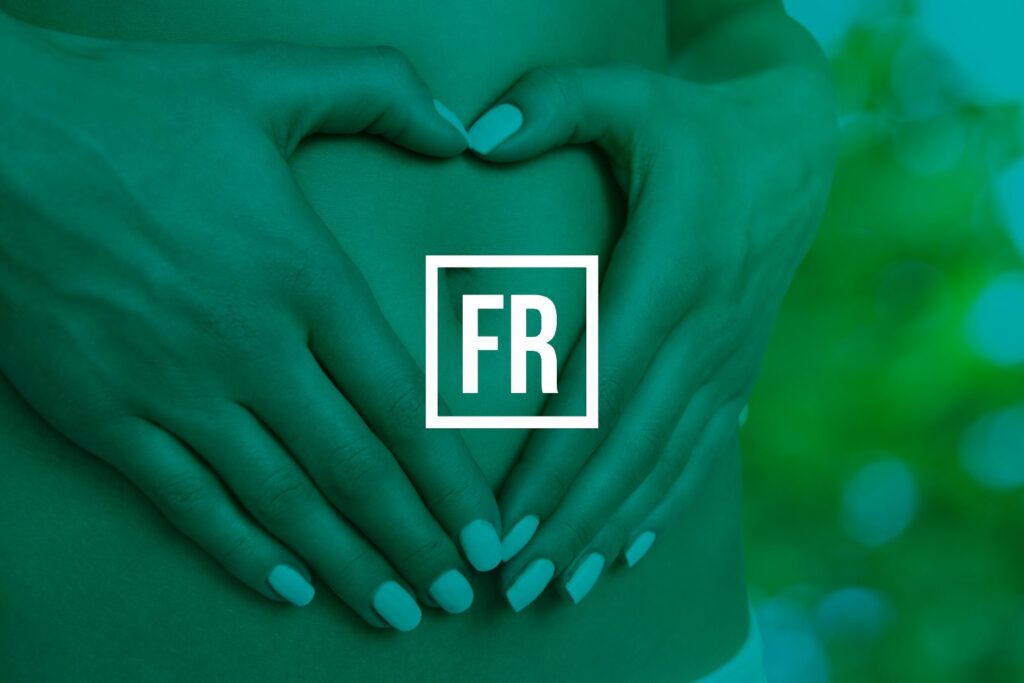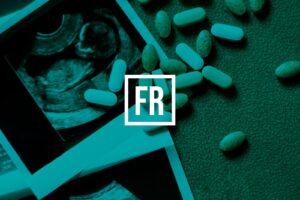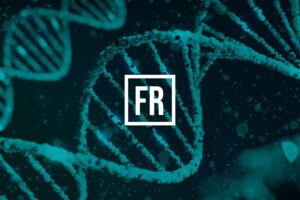Looking ahead – Questions and answers
In the first two parts of this three-part series, we explored decision making around donor conception and then what life is like when you have a young child. This article looks at what happens next, as children grow up and potentially start asking questions and having their own opinions. These are some of the scenarios that parents through donor conception need to consider and navigate, that are different from families created in other ways.
How will my child feel?
It can be very difficult to predict what this person, who didn’t even exist when decisions were being made on their behalf, might feel as they grow up. Some of how they feel about being donor conceived will be affected by their age and developmental stage, by what other things are going on in their life and, perhaps most importantly, by their relationship with parents and close family and friends. These things evolve and change, so don’t assume that a current state is fixed, whether that is acute interest in their donor conception story or complete disinterest. And, although you have some influence and control, you don’t have complete control. Your child will have their own journey exploring and integrating this information and understanding what it means to them.
Telling vs openness
As we explored in the second part of this series, talking about the fact of having used donor conception is something parents are often anxious about. There can be a build up to the first time you ‘tell’ and that can bring a sense of relief. It can feel like the job is done, and in one sense it is done. But really what we’re aiming for is an ongoing climate of openness in the family about the topic. In an ideal world, you want your child to feel comfortable and not feel they have to look after your feelings or hide their own.
Who needs to know?
Who to tell and when and how can be a minefield. It can be really surprising to see how many situations arise where the topic arises, directly or indirectly, and you have to decide whether to share the fact of having used donor conception or not. Your child may not look like you or look like they ‘fit’ the family and this can invite comments or questions from both strangers and friends. Your child may be very excited and proud of being donor conceived and want to share more widely and boldly than you feel comfortable with. School may be doing a family-related project and you may wonder about how the donor, or half siblings through the donor, fit in (if at all). They may be doing sex education classes or biology lessons where you would like the teacher to be aware of your child’s circumstances.
Maybe a health issue arises that could have a genetic component. Or your child develops interests or talents that you sense come from the donor and certainly don’t come from you! Family members may be doing DNA tests to explore their heritage which brings that conversation to the fore. Or your child may be dating or having children themselves and the topic resurfaces as relevant again.
For you, these can all be uncomfortable reminders of having used a donor and might require you to talk about difficult things you’d frankly rather avoid. But they are also opportunities to continue and expand the conversation with your child, reminding them that this is not a taboo topic, that it’s OK to talk about it and that, even if you find it hard, it’s not something for them to worry about with regard to your feelings. It can also be a helpful chance to check in on how your child is feeling as children don’t always voice things without a little nudge.
You can’t control everything
As a parent, you have quite a lot of control over your child, for example, setting bedtimes and meals and making decisions over schools and homes and holidays. You’ll probably encourage and discourage certain behaviours and friendships. And one of the other things you have some control over is creating a warm and open family environment. This foundation, alongside support from friends, family and the wider community, is really helpful for children to develop into strong, well-adjusted young adults.
But it doesn’t guarantee it. And it certainly doesn’t mean children won’t still ask challenging questions or do things you might prefer they didn’t. But creating a warm, open home environment should mean that they are more confident about being honest with you and you are more open to addressing any needs that arise. It’s partly why we focus so much on building parental confidence, rather than trying to control the outcomes. That way you will be in a better position to support your child whatever they might bring up or go through, donor conception related or not.
What if my child asks an awkward question?
Young children aren’t known for their ability to restrain comment, however inappropriate the situation might be. A young child might say something you’d rather they didn’t about any subject, donor conception included. Your child might also catch you off-guard and ask something about their donor or how they were conceived when you’re least expecting it and are totally unprepared.
I say ‘totally unprepared’ but perhaps ‘unexpected’ is the better part to emphasise, because you can prepare for questions and you can think through scenarios and work out how you’d like to respond. It’s the sort of thing that is covered on our Telling and Talking workshops and in our books. It’s also a topic that comes up between members sharing experiences and thoughts at our conferences and online chats and other discussion spaces. That preparation can reap real rewards if your child does suddenly come up with something at any age – a question or comment – where you had no warning that this was on their mind.
Curiosity affects more than just cats!
One of the things that your child may start wondering as they grow up is ‘who is this donor?’. It’s understandable that they might be curious and want information about them or want to meet them. If you used an anonymous donor this might feel very uncomfortable as you might have very little to share, possibly just blood group and age. It might even be tempting to think the easiest thing is to avoid this situation by never mentioning having used a donor.
However, this is a risky strategy. It’s highly unlikely that your child won’t find out at some point whether a parent is genetically related to them. Discovering they’re not by accident or in an unprepared way (possibly without you even knowing) can be damaging to the trusted relationship between a child and parent. It is better to hear it from you, the person who loves them, and it’s better they are told at a time and in a way that you have some control over, not a home DNA test result opened alone, or an accidental comment.
Questions about the donor might feel difficult if you used an anonymous donor, but really the answer to ‘who are they?’ is just shorter. You don’t know. You might have lots of information or very little. You might need to acknowledge that, yes, it is frustrating not to know more or not to be able to have agreed future contact. At times, you might need to sit with your child feeling confused or disappointed or cross that they can’t know more, and you might even share some of those feelings. On the other hand, you might find that the details you’re able to offer are enough to satisfy their curiosity. Like many other situations in family life, this one isn’t perfect and you’ll deal with things as they come up.
Known or ID release donors
If your donor is known to you the conversation around the donor will be quite different and questions will be much easier to answer and respond to. If you have an ID release donor who has agreed to be identifiable at some point in the future you may have more to share in answer to questions from your child. It may be frustrating not to be able to satisfy all their curiosity before the agreed date (for example, when they reach 18) which might seem a lifetime away to a 12yr old. There may also be other concerns around how to place the donor in the family story when this person might actually make an appearance one day. What is your child expecting and what is the donor expecting?
Of course, it’s not just the donor that needs some thought. There might also be genetic connections with half siblings in other families who have used the same donor. At some point you may be considering contact with the donor or half siblings and that reality can be exciting but also potentially scary and unknown.
Teenage years
It is really normal and common for teenagers to go through a powerful and important developmental stage, becoming individuals, separate from their parents and family. This can involve a lot of pushback against parents and, for donor conceived children, they may use the fact of being donor conceived as part of that pushback. It doesn’t necessarily mean more than any other common issues that parents and teenagers will argue over. They may have a sense, in a state of general, disgruntled, teenage irritation, that this will be the topic that will work to the best effect and use it on you for that reason. Or they may genuinely feel that this is something they want to challenge you about or explore.
The dreaded sentence ‘You’re not my real mum/real dad’ may come out of their mouth, either when young as a way of trying to understand the facts around being donor conceived or as a teenager as part of that process of challenging parents and their authority.
The wider context is important here but I have some general advice. Be prepared. Get support from others. Don’t rise to any bait. Deal with your own feelings separately and work at maintaining an open, loving space for them as best you can.
Is it your information, your child’s information or family information?
As children grow up you may decide to hand over some responsibility to them for deciding who to share information with. It’s family information and as the parent it’s your job to create the family environment for your young child. As they grow up, they may take more ownership of the information. It’s certainly helpful to include them in the conversations around who knows, or who you’re telling and why, from an age that feels appropriate. The sharing or handing over of that responsibility can be done in an organic and mutually agreed way.
What if you have older children who haven’t been told?
If you have adult children who haven’t been told, DC Network offers a bespoke service to support parents thinking through their options for ‘telling’. Although it’s often a daunting prospect for parents, it can be done very positively and most people express a huge sense of relief once the secret is out in the open. Get in touch with us to help.
Final words
Without the donor or donors your family wouldn’t exist but this is your family. Both things are true. Your child will develop their own understanding of and relationship to the donor, in person or theoretically. But you are the one parenting them and creating and sharing their experience and memory of family life. Do your very best. And don’t forget to enjoy the ups and the downs, the challenges and delights, that come with the privilege of raising children.






